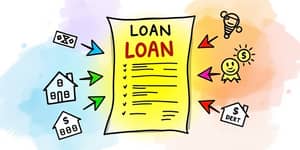Managing multiple debts can feel overwhelming, especially when each balance carries its own due date and interest rate. Debt consolidation offers a powerful solution to bring order to financial chaos. By merging several obligations into one manageable payment, you can focus on a clear path to becoming debt-free.
Understanding Debt Consolidation
At its core, debt consolidation is the process of combining multiple debts into one loan or credit line. This can include revolving credit card balances, personal loans, medical bills, and other unsecured debts. Rather than juggling separate payments and deadlines, consolidation rolls these accounts into a single new obligation, often featuring a lower interest rate and a structured payoff timeline. With fewer bills to monitor each month, you can alleviate administrative headaches and reduce the risk of late fees.
To initiate consolidation, borrowers typically complete an application that evaluates creditworthiness, income history, and existing debt levels. Lenders may require documentation such as pay stubs, bank statements, and identification. Once approved, funds are disbursed directly to creditors or deposited in your account. Within days to weeks, your various accounts will be paid off, leaving only the new consolidated balance to manage.
Though the consolidation loan creates a new line of credit, responsible use prevents the accumulation of fresh debt. Effective consolidation depends on sticking to a realistic repayment plan and avoiding the temptation to charge additional balances on emptied credit cards. By maintaining disciplined spending habits, you can harness consolidation’s benefits without undermining long-term financial goals.
Key Benefits of Debt Consolidation
When executed thoughtfully, consolidation delivers several critical advantages:
- Simplified monthly payment schedule: Instead of tracking multiple due dates, you make a single consistent payment.
- Lower interest rates and cost savings: Transition high-interest credit card balances to a loan with a more favorable APR.
- Improved credit utilization ratio: Paying off revolving credit lowers your utilization ratio, boosting your credit score.
- Enhanced peace of mind: A clear, structured plan reduces stress and fosters confidence.
To illustrate, imagine consolidating three credit cards totaling $10,000, with interest rates of 25%, 19%, and 12%. Rolling these into a single four-year loan at 8.49% APR produces dramatically lower interest costs.
*Original repayment timeline varies by payment speed, often spanning over a decade.
With this strategy, you would save over $5,500 in interest compared to making only minimum payments on the original cards. Such concrete savings drive faster progress toward your debt-free goal.
Comparing Consolidation Options
Borrowers have various paths to consolidate debt, each with distinct features and risks.
Personal debt consolidation loans offer fixed repayment schedules and predictable APRs. These loans often require proof of income and a minimum credit score, but once approved, you receive a lump sum to pay off existing debts directly. The structured timeline helps you track progress month by month.
Balance transfer credit cards provide introductory 0% APR periods that can last from 12 up to 21 months. You should consider the balance transfer fee—typically 3% to 5% of the transferred amount—and ensure you can pay off the balance before the promotional rate ends, or risk high variable rates.
Home equity loans and HELOCs tap into your property equity to secure lower rates. While these solutions reduce interest costs, they convert unsecured debt into secured debt, which puts your home at risk if you default. Carefully assess your ability to maintain payments over a longer term.
Peer-to-peer lending platforms connect borrowers with individual investors. These loans can feature flexible terms and may not rely solely on traditional credit metrics. Research platform fees and borrower protections before proceeding.
Top Lenders for Every Credit Profile
Choosing the right lender depends on your credit score, income, and debt level. Here are leading providers as of October 2025:
- Happy Money: Best rates for fair credit (minimum score 640), loans $5,000–$50,000.
- Rocket Loans: Ideal for excellent credit (score 660+), loans $2,000–$45,000.
- Upstart: Simple prequalification (score 620+), loans $1,000–$75,000.
- Best Egg: Attractive terms for homeowners (score 600+), loans $2,000–$50,000.
- Reprise: Options for bad credit (score 560+), loans $2,500–$25,000.
Discover pays creditors directly with no fees, while PenFed Credit Union offers 12-month terms capped at 17.99% APR. Upgrade sends funds right to your card issuers, and any remainder goes to your bank account.
When to Consider Consolidation and Warnings
Debt consolidation works best when you secure a lower APR than the average rate on your current debts. Compare the total cost over the life of the new loan against existing repayment plans to ensure net savings.
Keep in mind that applying for a new loan results in a hard credit inquiry, which may cause a temporary dip in your credit score. Over time, consistent payments and reduced credit utilization can help your score rebound.
Watch out for fees: some lenders charge origination or balance transfer fees that offset interest savings. Extending repayment terms too far may result in higher total interest costs despite a lower APR.
Not all options are available in every state, and eligibility criteria vary by lender. Review the fine print to avoid surprises such as prepayment penalties or restrictions on early payoff.
Building a Sustainable Debt-Free Future
Consolidation is just one step on a longer journey. To maintain momentum, start by establishing an emergency fund that covers at least three months of expenses. This safety net prevents you from relying on high-interest credit when unexpected bills arise.
Create a detailed budget outlining all income sources, fixed obligations, and variable expenses. Allocate a specific portion each month to savings and debt repayment, treating your consolidated loan payment as a non-negotiable commitment.
Track your progress through apps or spreadsheets, and set incremental milestones—celebrate when you reduce your balance by 25%, 50%, and finally reach zero. Positive reinforcement will sustain motivation and reinforce healthy financial habits.
Continue monitoring your credit reports for accuracy and signs of identity theft. A strong, well-managed credit profile not only saves you money but also opens doors to better mortgage, auto loan, and insurance rates in the future.
Conclusion
Debt consolidation can transform a tangled web of high-interest obligations into one clear, manageable path toward freedom. By researching options, comparing lenders, and understanding fees, you can secure a plan tailored to your financial situation. Embrace responsible money management, and take charge of your financial destiny—the journey toward a debt-free life begins with a single consolidated payment.
References
- https://www.fightbills.com/blog/2024/december/what-are-the-benefits-of-debt-consolidation-/
- https://www.credible.com/personal-loan/debt-consolidation-loans
- https://focusok.com/what-is-debt-consolidation-and-why-is-it-helpful/
- https://www.lendingtree.com/debt-consolidation/
- https://www.experian.com/blogs/ask-experian/pros-and-cons-of-debt-consolidation/
- https://www.experian.com/loans/debt-consolidation/
- https://www.usbank.com/financialiq/manage-your-household/manage-debt/Consolidating-debts-Pros-cons-keep-in-mind.html
- https://www.bankrate.com/loans/personal-loans/debt-consolidation-options/
- https://www.discover.com/personal-loans/resources/consolidate-debt/things-to-know-about-debt-consolidation/
- https://mycreditunion.gov/manage-your-money/dealing-debt/debt-consolidation-options
- https://www.bellco.org/loans/what-is-debt-consolidation-and-should-you-consolidate-your-debt/
- https://profedcu.org/learn/blog/personal-loans-vs-debt-consolidation
- https://crown-bank.com/the-benefits-of-debt-consolidation/
- https://www.creditkarma.com/personal-loans/shop/debt-consolidation
- https://www.oldnational.com/resources/insights/pros-and-cons-of-consolidating-your-debt/
- https://www.cbsnews.com/news/debt-consolidation-loans-vs-debt-consolidation-programs-whats-the-difference/
- https://www.nerdwallet.com/personal-loans/best/debt-consolidation-loans










